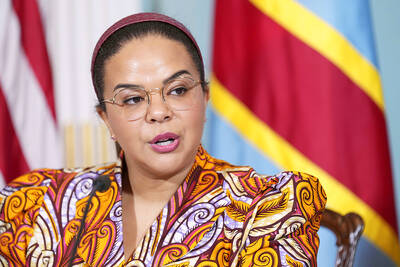A Saudi prince on Wednesday pledged to give away his entire US$32 billion fortune to charitable causes in Saudi Arabia and elsewhere in the world.
Prince Alwaleed bin Talal said the funds would go to his charity, Alwaleed Philanthropies, for causes like disease eradication, intercultural understanding, women’s empowerment, disaster relief and the electrification of isolated areas.
The new pledge by one of the world’s richest men follows moves by other hugely wealthy individuals to shift their fortunes into philanthropy. In a statement released online, Prince Alwaleed said his group had worked with the foundation established by Bill and Melinda Gates that had channeled billions of US dollars into similar causes.
The prince, a nephew of Saudi King Salman, holds no official position in government and is often seen as an outsider. He is known for giving relatively frank interviews on financial and political issues that sometimes rankle officials in the normally tight-lipped kingdom. And in the only country in the world where women are barred from driving, Prince Alwaleed employs many women, who dress as they wish.
The prince’s pledge came during the Muslim holy month of Ramadan, and he described the move as guided by his Islamic faith.
“With this pledge, I am honoring my lifelong commitment to what matters most — helping to build a more peaceful, equitable and sustainable world for generations to come,” he said.
He did not give a time frame during which the funds would be disbursed, but said he had formed a board of trustees to choose projects and oversee them.
Most of the prince’s wealth is in the investment firm Kingdom Holding, of which he owns 95 percent of shares. His investments include stakes in Twitter, Apple, Citigroup, Euro Disney and the News Corp.
In the past 35 years, his charity has invested in US$3.5 billion worth of projects in more than 92 countries and has supported study centers at a number of top universities, the statement said.

STEPPING UP: Diminished US polar science presence mean opportunities for the UK and other countries, although China or Russia might also fill that gap, a researcher said The UK’s flagship polar research vessel is to head to Antarctica next week to help advance dozens of climate change-linked science projects, as Western nations spearhead studies there while the US withdraws. The RRS Sir David Attenborough, a state-of-the-art ship named after the renowned British naturalist, would aid research on everything from “hunting underwater tsunamis” to tracking glacier melt and whale populations. Operated by the British Antarctic Survey (BAS), the country’s polar research institute, the 15,000-tonne icebreaker — boasting a helipad, and various laboratories and gadgetry — is pivotal to the UK’s efforts to assess climate change’s impact there. “The saying goes

Floods on Sunday trapped people in vehicles and homes in Spain as torrential rain drenched the northeastern Catalonia region, a day after downpours unleashed travel chaos on the Mediterranean island of Ibiza. Local media shared videos of roaring torrents of brown water tearing through streets and submerging vehicles. National weather agency AEMET decreed the highest red alert in the province of Tarragona, warning of 180mm of rain in 12 hours in the Ebro River delta. Catalan fire service spokesman Oriol Corbella told reporters people had been caught by surprise, with people trapped “inside vehicles, in buildings, on ground floors.” Santa Barbara Mayor Josep Lluis

Police in China detained dozens of pastors of one of its largest underground churches over the weekend, a church spokesperson and relatives said, in the biggest crackdown on Christians since 2018. The detentions, which come amid renewed China-US tensions after Beijing dramatically expanded rare earth export controls last week, drew condemnation from US Secretary of State Marco Rubio, who on Sunday called for the immediate release of the pastors. Pastor Jin Mingri (金明日), founder of Zion Church, an unofficial “house church” not sanctioned by the Chinese government, was detained at his home in the southern city of Beihai on Friday evening, said

SANCTIONS: Congolese Minister of Foreign Affairs Therese Kayikwamba Wagner called on the EU to tighten sanctions against Rwanda during an event in Brussels The Democratic Republic of the Congo (DR Congo) has accused the EU of “an obvious double standard” for maintaining a minerals deal with Rwanda to supply Europe’s high-tech industries when it deployed a far-wider sanctions regime in response to the war in Ukraine. Congolese Minister of Foreign Affairs Therese Kayikwamba Wagner urged the EU to levy much stronger sanctions against Rwanda, which has fueled the conflict in the eastern DR Congo, describing the bloc’s response to breaches of the DR Congo’s territory as “very timid.” Referencing the EU’s response to Russia’s invasion of Ukraine, she said: “It is an obvious double standard